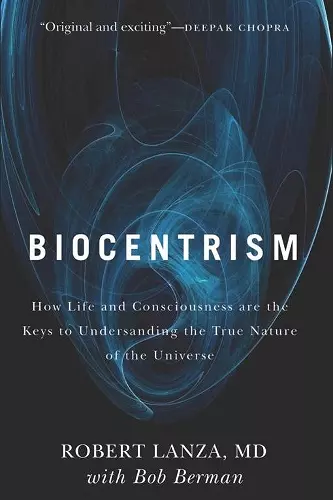Biocentrism
How Life and Consciousness are the Keys to Understanding the True Nature of the Universe
Bob Berman author Robert Lanza author
Format:Paperback
Publisher:BenBella Books
Published:18th May '10
Currently unavailable, our supplier has not provided us a restock date

This book presents a revolutionary perspective that life creates the universe, fundamentally altering our understanding of existence and reality. Biocentrism challenges traditional views.
In Biocentrism, Robert Lanza, a renowned scientist, collaborates with Bob Berman, a prominent astronomer, to present a groundbreaking perspective on the universe. This book challenges the traditional view that life is merely a byproduct of the laws of physics, suggesting instead that life itself creates the universe. Lanza's insights draw parallels to historical shifts in understanding, such as the realization that the Earth is not flat, and invite readers to reconsider their relationship with reality.
The authors explore how the advancements in quantum theory have led to a transformation in Western philosophy, pushing us toward a new understanding of existence. The premise of Biocentrism posits that life is not accidental but a fundamental aspect of the universe, which fundamentally alters our perception of time, space, and even death. This radical idea encourages readers to break free from conventional scientific confines and embrace a more holistic view of life.
As we move into the 21st century, a time expected to be dominated by biological sciences, Biocentrism serves as a timely reminder of the importance of life in the cosmic narrative. The book aims to instill a renewed sense of wonder and possibility, encouraging readers to view reality through a lens that emphasizes life's central role in shaping the universe. With its provocative ideas, this work promises to leave a lasting impact on how we perceive our existence.
ISBN: 9781935251743
Dimensions: 230mm x 152mm x 15mm
Weight: 283g
200 pages